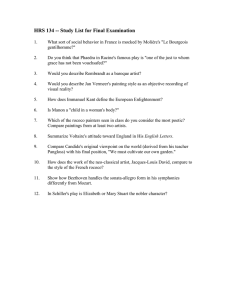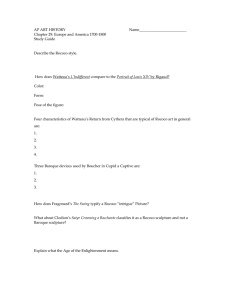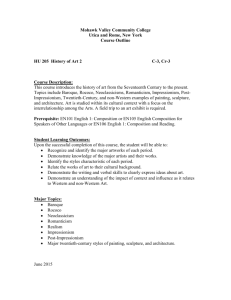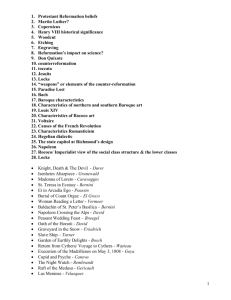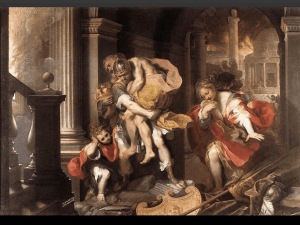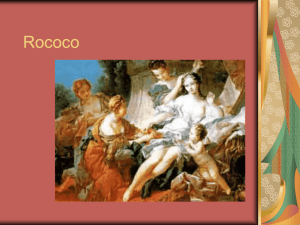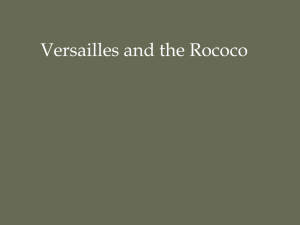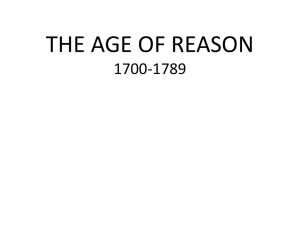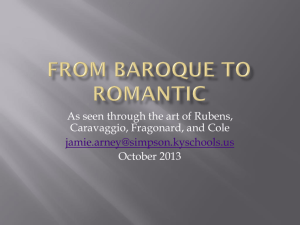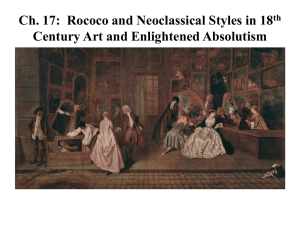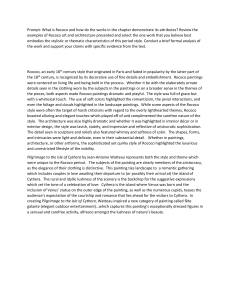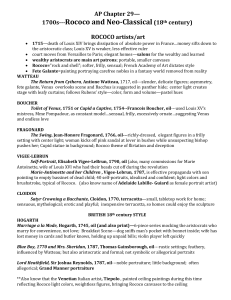Art project rococo
advertisement
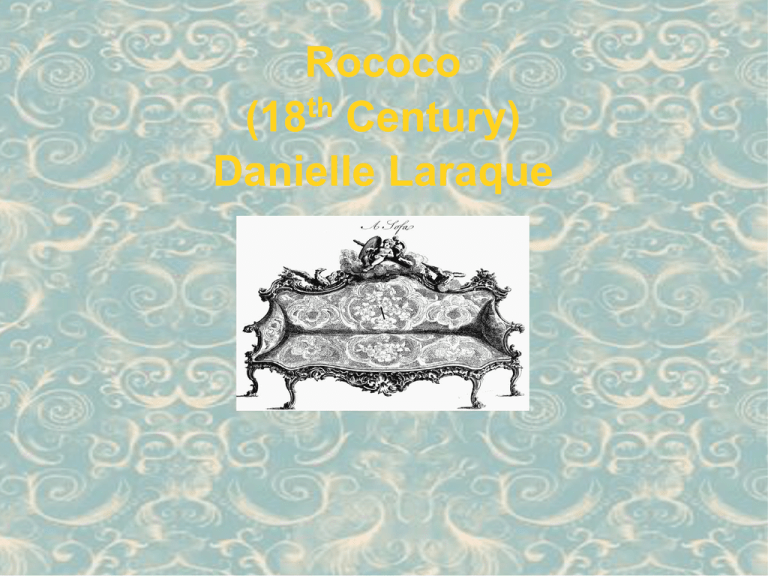
Rococo (18th Century) Danielle Laraque \ Background 18th century [Late-Baroque] Emerged in France In 1699 King Louis XIV ordered the artists commissioned for works in Versailles to exemplify a more playful look. Rejected baroque's seriousness Aimed to look graceful and gentle Affected several different pieces of art Became less popular when Neoclassicism emerged in France in the late 18th century Characteristics Graceful, gentle, fragile Curves followed the lines of natural objects Baroque depicted bravery and courage but Rococo showed aristocracy at play. Unlike past art pieces which had religious aspects, Rococo was secular but spiritual at times Rococo paintings were smaller compared to past ones Bright colors, ornate details, interlaced designs Characterisitics portrayed how Rococo art appealed to the wealthy of France. Its lightness and allure illustrated Rococo as a dream of happiness. Jean-Honoré Fragonard “Young Girl Reading” 1776 Antoine Watteau “Return from Cythera” 1717-1719 Characteristics of Rococo Architecture Walls, ceilings, and moldings had fragile interlacing of curves based on the letters “C” and “S” Other natural shapes were also included in its form Asymmetrical design was key Light pastels, ivory white, and gold were the predominant colors Mirrors were used to enhance architecture Versailles building and The Hall of Mirrors at Versailles, France Louis Le Vau, Jules Hardouin Mansart, Philibert Le Roy 1664-1710 The Bishops Palace, the Residenz The residential palace of the Schönborn princebishop of Würzburg at Würzburg, Germany Balthasar Neumann 1720-1740 “Psyche Revived by Cupids Kiss” Antonio Canova 1787-1793 Thank You
